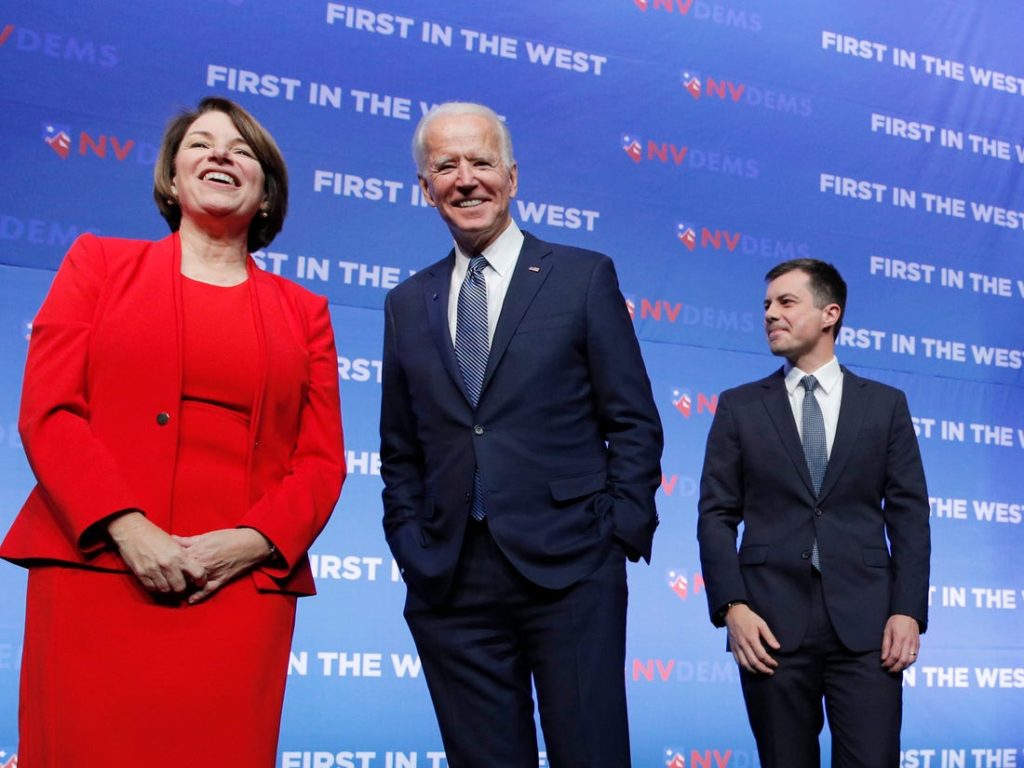30%

It’s worth following up a bit on the story Paul links to below about Bernie all but writing off South Carolina and its predominantly African-American electorate. Note here that the margins were very important — a 10 point win for Biden would have been covered differently than a 30 point win would have been, and would also have made it harder to convince Buttigieg and Klobuchar to drop out.
But the broader issue here, in addition to Sanders’s blind spots, is that his campaign seems to have been fundamentally based on faulty premises:
The senator from Vermont’s pitch is a mix of idealism and a shouting anger about the system, but at its heart is a hard-nosed math: He’s the only candidate with a sizable chunk of the electorate that won’t waver, no matter what, so a field that keeps growing and splitting support keeps making things easier.
He’s counting on winning Iowa and New Hampshire, where he was already surprisingly strong in 2016, and hoping that Cory Booker and Kamala Harris will split the black electorate in South Carolina and give him a path to slip through there, too. And then, Sanders aides believe, he’ll easily win enough delegates to put him into contention at the convention. They say they don’t need him to get more than 30 percent to make that happen.
If your plan was “Kamala Harris and Cory Booker remaining viable enough to get substantial support in South Carolina but not viable enough to threaten me,” that’s not a lot better than having no plan at all. The idea that 30% of the primary electorate was good enough is just crazy — it’s a plan that seems devised by the kind of pundit who spends most of his time until May of every presidential election year coming up with baroque brokered convention scenarios with a 0% chance of happening. In general, primary fields winnow very quickly. If your strategy is betting on your opposition just remaining permanently fractured, you’re making a very long-odds bet that everything will break right. And your campaign can be an extremely powerful unprecedented grassroots juggernaut, or a rickety enterprise that can be derailed by The Establishment using such fearsome weapons as “having the senior senator from Minnesota and former mayor of South Bend, IN endorse a half-coherent 77-year-old barely running a campaign at all,” but it can’t be both.
When you adopt “hope the opposition remains hopelessly divided so you don’t need to bother expanding your coalition” as a strategy, you leave yourself vulnerable to external events. pic.twitter.com/cs9Qv0qN6V— Matthew Yglesias (@mattyglesias) March 4, 2020
It didn’t have to be this way — Bernie is popular among ordinary Democratic voters! But they chose not to focus on an expansion strategy.
Their other pretext for not trying to expand their base within the party was to fantasize about a massive tsunami of young voters and non-voters, which was always implausible and very clearly not happening in the early contests in which Bernie had invested in substantial ground operations:
Bernie’s strategy is completely wrong and the campaign has to decide whether it’s going to drastically change its approach, or keep banking on a miracle turnout that is not going to materialize.— Lindsay Beyerstein (@beyerstein) March 4, 2020
Turnout among young voters in fact remained low, and the theory that fewer young people vote because they haven’t been offered enough social democratic policy proposals was never anything but wishful thinking generated by people who think ordinary Democratic voters are icky, but here we are.
Can he pivot to a more expansive strategy? His new Obama ad suggests yes. His press conference…less so. And it might be too late now anyway.


